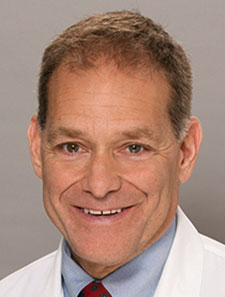One of the most frequently asked questions I get from colleagues, particularly trainees and more junior colleagues, is “Why should I join all those societies?” To be honest, it’s a fair question and one that I am happy to answer.
Explore This Issue
May 2025I always begin by discussing the value of being in a group. Even when organized, otolaryngology is a tiny piece of the House of Medicine. If there are issues that any otolaryngologist wants to advance, societies can give that person a platform to amplify that message or cause. In addition, societies have a dramatic impact on competence as an otolaryngologist. The educational component goes well beyond journals, which you can find in PubMed. There are seminars, webinars, symposiums, and meetings that target the educational needs of the members, including both patient care and administrative issues. Being a member of a society is a mark that you have the tools to stay current in your specialty. Most importantly, society membership allows you to maintain and gain lifelong friendships with colleagues who can provide opportunities and advice, as well as overcome challenges.
The Triological Society is special because it recognizes excellence in our field. The Society does so by having entrance requirements that anyone can meet after they have been in practice for at least three years following the completion of their primary residency training. TRIO is the only scientific organization that serves the whole specialty and focuses on issues that members can use to better serve their patients. We have a broad range of educational offerings throughout the year, including our award-winning journals, meetings, webinars, and symposiums.
The Society is a fierce advocate of diversity in our membership, committees, and meeting programs, ensuring these represent the entire specialty and the patients we serve. We give grants to any medical student or resident who presents at our meetings to cover their costs. We are the only society to do this, and many of you may have been recipients of these grants in the past. This is on top of the hundreds of thousands of dollars we spend funding surgeon scientists every year.
I know what you are asking now: “How do I become a member of this transformative society?” The answer is easy. If you have been in practice for at least three years, find two members of the Triological Society (we can help you if you need names) to nominate you for candidacy. Those nominations open on May 1st and close September 30th. You do not need a thesis topic developed to become an active candidate. After your candidacy is approved, you will have two or more years to develop and write your thesis. The thesis does not have to be basic or clinical science, as we have developed new thesis categories to embrace the evolution of healthcare. The society welcomes everyone and will provide the help you need to become a member. For those of you not yet three years out, we offer free resident memberships and significantly reduced-price post-graduate memberships for those who recently graduated.
Beyond being a mark of honor, membership in our society gives you the opportunity to develop lifelong friendships, which is critical as we navigate modern medicine. In every way possible, the Triological Society embodies why I join societies.
 Dr. Hoffer is a professor of otolaryngology and neurological surgery at the University of Miami and the president of The Triological Society.
Dr. Hoffer is a professor of otolaryngology and neurological surgery at the University of Miami and the president of The Triological Society.
Leave a Reply